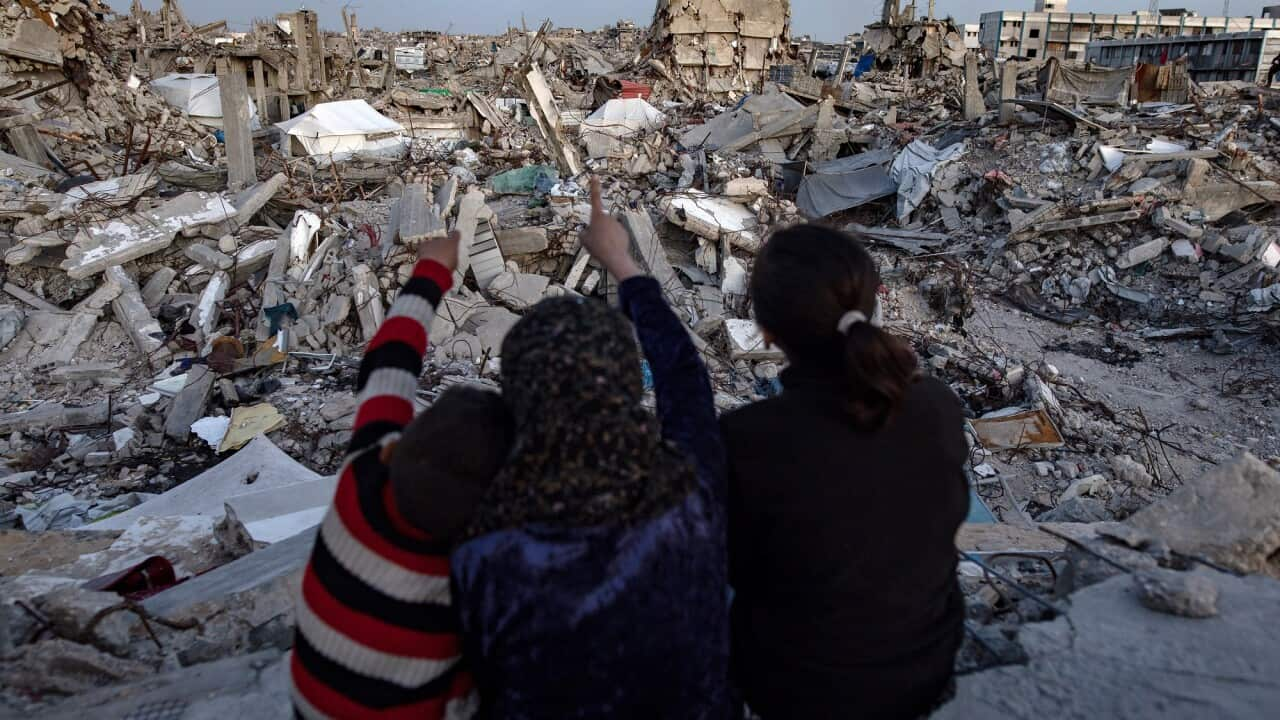TRANSCRIPT
Hamida Hossaini is proudly putting the finishing touches to a canvas of colourful flowers. The refugee from Afghanistan loves art. And thanks to a Neighbourhood House in Melbourne’s Ascot Vale, she is back at an easel again!
“When I was back home in Afghanistan, I attended painting classes. I could never imagine getting back to those classes and practice painting again. Since I moved to Australia, I felt ecstatic!”
It’s just one positive step for Ms Hossaini who spoke little English when she arrived in Australia three years ago with her engineer husband and young children.
She now also attends weekly English classes which, she says, are changing her life in many ways.
“My teacher is a beautiful teacher. Learning English helps me. I go shopping, I meet new people. I am strong. I don't feel scared.”
Overcoming fear in a new land is a big challenge for Ms Hossaini who is among 170-thousand people to attend Neighbourhood houses each week in Victoria.
The 40-year-old loves learning and says it’s the main reason she fled her homeland with two daughters.
The ruling Taliban has placed strict bans on women’s education since regaining power in 2021.
“It made me really upset because my daughters weren't able to go to school. That was the terrible moment I experienced in my life that I had to leave my family home and country and start a new life.”
This Neighbourhood House in the Wingate Avenue Community Centre opened in 1985.
It is one of 400 across Victoria.
Services have expanded in recent years, to provide food relief and financial support.
But General Manager Angie Courtenay says in the current cost of living crisis, resources are stretched.
“We're seeing a lot of community members coming in extreme distress. And so that is literally having to choose between paying for petrol for the car or buying food for the kids for the night. So our food relief program, the demand has doubled. Demand for employment support as in finding a job and getting job ready to start a job has more than doubled.”
And it’s the same story across the country, according to the Neighbourhood Houses Victoria CEO Keir Paterson.
“They are often called different things in different states, but there are 1,069 I think at last count across Australia. So right now the need is worse than it's ever been. And we see that particularly going into Christmas, everyone's costs are going up particularly people that are relying on income support, it just doesn't stretch for the two weeks. So they will come to the Neighbourhood house, they'll get their food support package or box of food or access the food pantry and that will keep them going,”
Mr Paterson says more than 13 tonnes of food are delivered daily to centres across Victoria. Although most food is donated – running costs are rising.
“The last time we did a major survey of the sector, about 45 per cent of neighbourhood houses were reporting that they were running at a loss. That's clearly unsustainable over the long term. We're going into a very difficult time as a sector, so there are more and more demands on our services and costs are also costs for us are also going up. So, the next year will be really tricky for a lot of Neighbourhood houses and they'll have to make a really difficult decision as to whether they shut down some of these services.”
With English classes and community support, Ms Hossaini is flourishing in Australia, as Ms Courtenay explains:
“She's come from this environment where she wasn't able to engage in society as a female. And she's come here and really embraced every opportunity but for her daughters who have come and were unable to study in her own country to come here and to learn English and all the other things they want to do. I think it's been a great journey for her. And yeah, I'm super proud of her.”
To keep supporting those in need, Neighbourhood Houses are asking the federal government for help next year.
Ms Hossaini is among those hoping their message is heard.
“I found many friends who they are all the same as me. We are all immigrants and we have the same pain. So I feel really comfortable here and I feel really happy and I feel I belong to this community here.”













